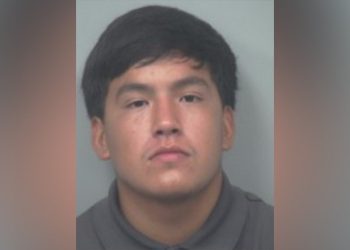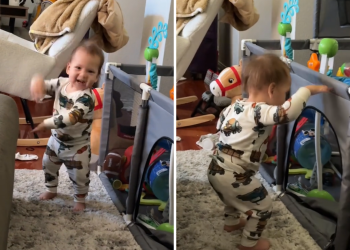Convicted of 34 felony counts in his hush money case, Donald Trump could have faced severe consequences. Each of the felony counts of falsifying business records was punishable by up to four years in prison and fines of up to $5,000. Yet U.S. District Judge Juan Merchan took a remarkably light approach in sentencing Friday, issuing Trump an “unconditional discharge” — meaning no jail time, no fines, and effectively no punishment except that he retains his felony conviction.
For many in the criminal justice reform and abolitionist space, his feather-light sentence further highlights the widespread inequities and failures of a criminal legal system where hundreds of thousands of Americans remain behind bars without ever even being convicted, let alone of a felony.
Despite the nonexistent penalties (aside from limits on his ownership of firearms and a requirement that he provide a DNA sample for a New York state database), Trump continued to rail against his prosecution. He called it “a very terrible experience” that was politically motivated, echoing his previous claims that he was facing a “two-tiered justice system.”
In the same city across a thin stretch of river, Ann Mathews, managing director of the Bronx Defenders, a public defenders nonprofit serving low-income Bronx residents, agrees that this case highlights the two tiers of justice. Just not in the way Trump means.
“This never happens for our clients,” said Mathews. “We felt the outrage. And then I think, wow, imagine the people we represent.”
Paul Henderson, a former San Francisco prosecutor, agrees that such a sentencing is unheard of in a case like this. “I’ve been a prosecutor for a long time; I’ve worked in accountability my entire career; I don’t see sentences like that; I just don’t,” said Henderson.
This type of special treatment is nothing new for the former president, who has routinely been treated by the justice system as if he was above the law — most notably in the Supreme Court decision in July granting him immunity from prosecution for “official acts.”
Throughout the trial, Mathews noted, Trump was granted liberties that are never given to her clients, including having his attorneys present at his probation interview. “We’re never allowed to accompany our clients, and in fact, are specifically prohibited from being there during a probation interview, which is an incredibly important moment in the case for a client who is going to be sentenced,” said Mathews.
The public defender said she doesn’t take issue with the fact that he was allowed his attorney. “The point is, everybody should have an attorney present during a probation interview, and that should be the norm,” she said.
Inequity is a central feature of the criminal justice system in which Mathews works. Clients with deep pockets have a clear advantage. Some judges, she said, treat defendants with paid counsel differently than those who have to rely on free services like the Bronx Defenders.
“If you are somebody who is able to retain counsel, and you have either an unlimited or significant sort of money source upon which to fund your defense, there are any number of resources that even the most well-funded public defender office does not have,” she said.
It’s not just the wealthy who have a leg up; race is another layer of inequity in the system, said Vincent M. Southerland, NYU Law School professor and faculty director of NYU’s Center on Race, Inequality, and the Law.
“We have — and this is part of a long history of America — this kind of presumption of criminality and dangerousness that attaches to brown skin and one’s race,” said Southerland.
These assumptions lead to a host of differential outcomes for people of color in the justice system, said Southerland, a former federal public defender. Black and Latino defendants, in particular, face longer sentences, higher conviction rates, and are more likely to be wrongfully convicted of a serious crime.
“That kind of presumption of dangerousness and criminality will seep into the sorts of judgments that folks who are making decisions about whether or not someone should be held in custody, what sentence they should be, what sentences that might be appropriate for them, what charges should be labeled against them,” he said.
Mathews said she doesn’t take issue with the fact that Trump was granted the unconditional discharge. She just wishes that some of that same leniency could be shown in other cases. “Why is it that in so many similar situations, and even arguably less serious at least in terms of the charges,” she said, “we see much harsher sentencing?”




















